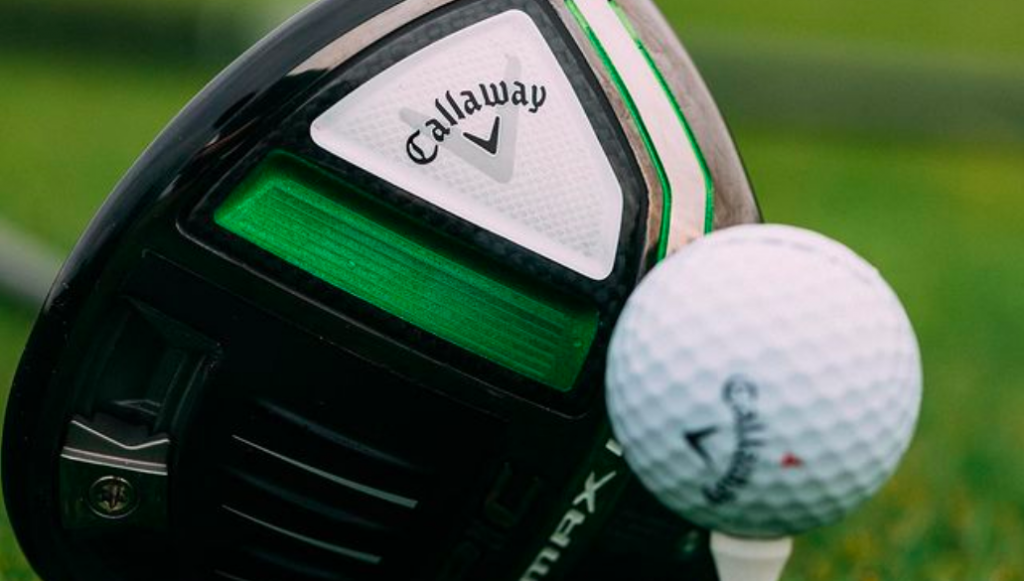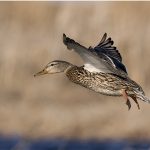Callaway Golf Company reported sales grew 20 percent in the fourth quarter due to continued robust demand for golf equipment business and a recovery in its soft goods business led by sales of TravisMathew and Jack Wolfskin. The loss on an adjusted basis was slightly higher year-over-year due to markdowns to clear apparel inventory and higher air shipments to meet demand.
We are very pleased with how strongly our business finished 2020 with our consolidated fourth-quarter net sales increasing 20 percent compared to the same period in 2019,” commented Chip Brewer, president and CEO. “This increase reflects continued unprecedented demand in our golf equipment business and a quicker than expected recovery in our soft goods business led by sales of TravisMathew and Jack Wolfskin apparel. We are very thankful we were able to finish 2020 with strong brand momentum and a strong balance sheet. We are mindful, however, that COVID-19 is still present and our hearts go out to all those around the globe who have been impacted by it.”
“Looking forward, we anticipate COVID-19 will continue to negatively impact our business in 2021 given the continued government shutdown orders and other restrictions around the world, although to a lesser degree than in 2020,” continued Brewer. “We anticipate that our continued brand momentum, increased demand for golf equipment and recovery in our soft goods business will continue into 2021 and therefore help mitigate that impact. We are also excited about our pending merger with Topgolf which is on track, subject to shareholder approval, to close in the first quarter of 2021. All in all, we are cautiously optimistic as we enter 2021 and believe 2021 will be a stepping stone to more normal conditions and the resulting transformational growth we have projected for 2022.”
Summary Of Fourth Quarter 2020 Financial Results
For the fourth quarter of 2020, the company’s net sales increased $63 million (20 percent) to $375 million, a fourth-quarter record for the company, compared to $312 million for the same period in 2019. This increase was driven by a 40 percent increase in the golf equipment segment resulting from the continued high demand for golf products late into the year as well as the strength of the company’s product offerings across all skill levels. The company’s soft goods segment also continued its strong rebound during the fourth quarter of 2020, with sales increasing 1 percent versus the same period in 2019. Changes in foreign currency rates had a $9 million favorable impact on fourth-quarter 2020 net sales.
For the Q420, the company’s gross margin decreased 460 basis points to 37.1 percent compared to 41.7 percent for the Q419. Non-GAAP gross margin decreased 520 basis points to 37.2 percent compared to 42.4 percent for the Q419. The decrease was primarily attributable to the company’s proactive inventory reduction initiatives in the soft goods segment, increased operational costs due to COVID-19 and increased freight costs associated with higher rates and a higher mix of air shipments in order to meet demand. These decreases were partially offset by favorable changes in foreign currency exchange rates and an increase in the company’s e-commerce sales.
Operating expenses increased $18 million to $171 million in Q420 compared to $153 million for the same period in Q419. Non-GAAP operating expenses for the Q420 were $162 million, an increase of $14 million compared to the Q419. This increase was primarily driven by the company’s decision to pay back employees (other than executive officers) for their reduced salary levels for a portion of the year, increased variable expenses related to higher sales, continued investments in the company’s new businesses, and unfavorable changes in foreign exchange rates.
Fourth-quarter 2020 loss per share was 43 cents a share, compared to a loss per share of 31 cents for Q419. Non-GAAP Q420 loss per share was 33 cents, compared to a loss per share of 26 cents for the Q419.
Summary Of Full Year 2020 Financial Results
The company’s net sales decreased $112 million (7 percent) to $1,589 million in 2020, compared to $1,701 million in 2019. This decrease reflects a 16 percent decrease in the soft goods segment globally due to the negative impact of the COVID-19 pandemic, including the temporary closure of most of the company’s operations and retail doors during the second quarter of 2020, with additional closures in the fourth quarter of 2020. This decrease was partially offset by the golf equipment segment, which saw strong momentum during the second half of the year and resulted in the segment being slightly up year-over-year and a significant increase in the company’s e-commerce sales in 2020 compared to 2019. Changes in foreign currency rates had an $11 million positive impact on 2020 net sales.
The company’s 2020 gross margin decreased 370 basis points to 41.4 percent compared to 45.1 percent in 2019. Non-GAAP gross margin decreased 400 basis points to 41.8 percent in 2020 compared to 45.8 percent in 2019. The decrease in non-GAAP gross margin was primarily attributable to the decrease in sales related to the COVID-19 pandemic, the proactive soft goods inventory reduction initiatives, and costs associated with idle facilities during the government-mandated shutdown. The decrease in gross margin was partially offset by favorable changes in foreign currency exchange rates and a favorable mix created by an increase in the company’s e-commerce sales.
Operating expenses increased from $129 million to $763 million in 2020 compared to $634 million in 2019. The increase was primarily due to a $174 million non-cash impairment charge related to the Jack Wolfskin goodwill and trade name. Excluding the non-cash impairment charge and other items mentioned above, non-GAAP operating expenses were $570 million in 2020, a decrease of $47 million compared to 2019. This decrease was driven by the cost reduction actions the company began in March 2020 in response to the COVID-19 pandemic as well as lower variable expenses partially offset by continued investments in the company’s new businesses and unfavorable impacts of foreign exchange rates.
2020 loss per share was $1.35, compared to fully diluted earnings per share of $0.82 for 2019. Excluding the impairment charge and the other non-recurring items mentioned above, 2020 non-GAAP fully diluted earnings per share was $0.67, compared to fully diluted earnings per share of $1.10 for 2019. The non-GAAP earnings in 2020 included foreign currency-related gains of approximately $0.20 per share (including approximately $0.09 per share related to the settlement of a cross-currency swap program), compared to approximately $0.03 per share of foreign currency-related gains in 2019.
Outlook For Callaway Golf
Given the continued uncertainty related to COVID-19, the company is not providing sales and earnings guidance for 2021 at this time. The company, however, did highlight certain factors that are expected to affect 2021 financial results.
- Net Sales — The company noted that on a pre-merger basis, which includes only Callaway Golf’s business and does not take into account Topgolf’s business following the proposed merger, its consolidated net sales for the first quarter of 2021 will exceed 2020 net sales but will continue to be negatively impacted by COVID-19. More specifically, the company’s soft goods business will continue to be impacted by the regulatory shutdown orders in Europe and Asia during the first quarter but then should strengthen during the balance of the year as the regulatory restrictions subside. The company’s golf equipment business is expected to be impacted by temporary supply constraints caused by COVID-19 during the first quarter, which could affect the company’s ability to fulfill all of the robust demand in its golf equipment business. The company believes there are opportunities for supply to catch up beginning in the second quarter.
- Gross Margin — On a pre-merger basis, full-year 2021 non-GAAP gross profit as a percent of net sales (“gross margin”) will also be negatively impacted by increased operational costs due to COVID-19, including higher labor costs, logistical challenges as well as increased freight expense resulting from a shortage of ocean freight containers. The freight container shortage alone is estimated to have a negative $13 million impact on freight costs in 2021 with a substantial majority of the impact occurring during the first half. The company believes that its full-year 2021 gross margin will be approximately the same as in 2019 despite these gross margin headwinds.
- Operating Expenses — On a pre-merger basis, full-year 2021 non-GAAP operating expenses are estimated to be approximately $70 million-$80 million higher compared to full-year 2019 non-GAAP operating expenses. In addition to the negative impact of changes in foreign currency rates (estimated to be approximately $20 million) and inflationary pressures, the increased operating expenses generally reflect continued investment in the company’s current business. This investment includes the investment needed to assume the Korea apparel business from its current licensee in the back-half of 2021; investment in the pro tour; and continued investment in the soft goods business, including the TravisMathew business related to opening new retail doors, investment in infrastructure and systems and investments related to new market expansion for Jack Wolfskin in North America and Japan. The company believes that these investments will continue to drive growth in sales and profits but expects to incur the expenses for these investments prior to receiving the associated benefits.
- Other Income/Expenses — In 2020, the company realized gains from certain foreign currency hedges in the aggregate amount of approximately $25 million. These gains are not expected to repeat in 2021.
Photo courtesy Callaway Golf















